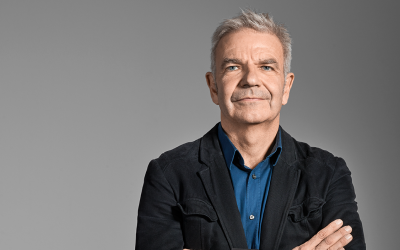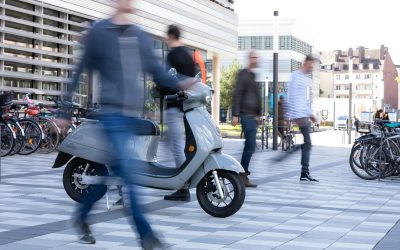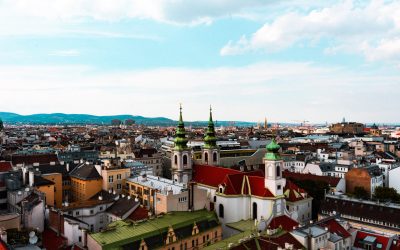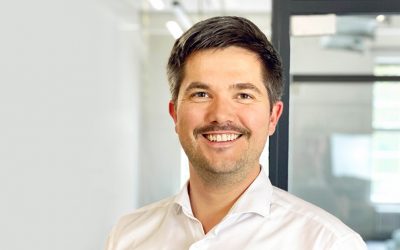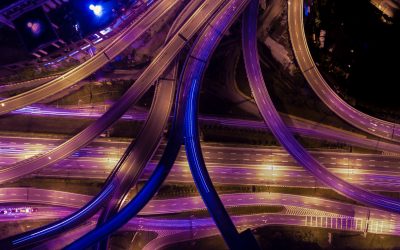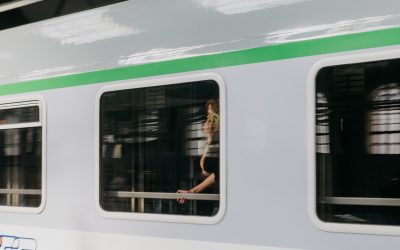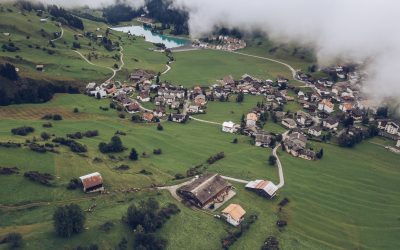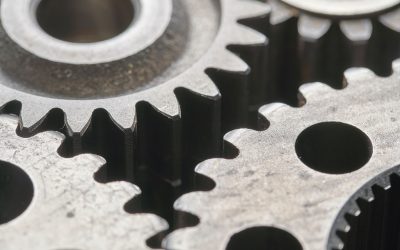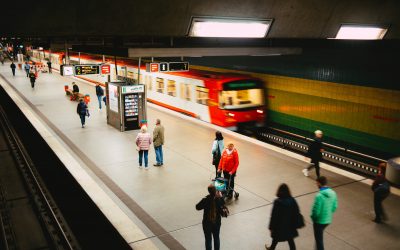Car-free city: meaningful reform or wishful thinking?
Looking at our society from a above perspective without any prior knowledge, it seems as if the idea of a planet with endless resources has strongly manifested itself in the minds of people. A prime example of this way of thinking is the current use of motorised individual transport. If I want to drive, I have a seat in my car, fill up the tank, fasten my seat belt, press the accelerator and drive off. This way of thinking is dangerous. Motorised individual transport requires that resources are consumed – for a car that weighs 1.5 tonnes on average, that means about 70 tonnes of material only in production. In addition, the car pollutes the environment with every use and takes up too much space, especially in large cities.
Perspectives from Prof. Peter Eckart
Prof. Peter Eckart studied product design at the Bergische Universität GHS Wuppertal and later at the Hochschule für bildende Künste Hamburg. In 2000, he founded the design studio unit-design, Frankfurt, Bern, together with Bernd Hilpert, with whom he also works for the Deutsche Bahn. Since 2000 Peter Eckart has been Professor of Integrative Design at the HfG Offenbach and since 2011 Vice President of the University. His central research field is mobility design. Since 2018, he has been leading the interdisciplinary LOEWE research project with Prof. Dr. Kai Vöckler in the fields of urban and transport planning, social science mobility research, multimedia technologies and the design entitled project-mo.de, which focuses on the role of design in changing mobility behaviour.
Green Fleet
Fleet management follows social and economic trends: New forms of work, digitization and the shift in values towards a greater understanding of sustainability are having an impact on the design of company-organized mobility. But what does this constant change in mobility structures mean for companies and where are the opportunities?
The Vienna Model
Vienna’s public transport system is among the best in the world. The network is dense and the frequency is tight. It is so well developed that you don’t even need to know the timetable. A total of 2.61 million people are transported from A to B by public transport here every day. The popularity can also be seen in the modal split, because: The public transport users have overtaken the car drivers. Around 38 percent of the distances are covered by public transport, while «only» 27 percent are covered by car. But what makes vienna different from other cities?
Perspectives from Jakob Muus
Jakob Muus is the founder and CEO of Tracks, a Berlin-based tech company with the goal of making road freight transport more efficient and sustainable through modern technologies. The platform developed by Tracks provides its users with analyses and recommendations for action, with which they can reduce the fuel consumption and CO2 emissions of their fleet. This not only improves the environmental balance but also the competitiveness of participating companies.
Mobility in the city
An ever increasing urbanization of our society is clearly visible. Young people in particular are increasingly moving their centre of life from rural regions to the cities. In addition, there are many commuters who do not want to live directly in the urban jungle, but who find well-paid jobs mainly in the cities. This congestion in the cities and the associated additional traffic flows have consequences – especially for our increasingly grey planet. But what challenges must urban public transport face in times of the mobility change? And what role will it itself play in this?
What’s green? The Deutsche Bahn
Whether in the city or in rural areas, everyone agrees on one thing: to protect our planet, we all need to become greener again. Not only in the household many people are making an effort to consume wisely and are once again considering whether they should use plastic bags or eat meat every day. There is also a rethink on mobility issues. Especially for Generation Z, travelling by plane is no longer «state of the art». Last year, the DB recorded 150.7 million customer trips which also shows that many people care about their green footprint.
Modern mobility in rural areas
Almost 16 million people live in rural regions throughout Germany. For them it is often a difficult task to get from A to B by public transport. After all, rural regions are at the back of the queue when it comes to expanding public transport. But why is the accessibility of these regions so poor and public transport hardly an alternative? How can it be guaranteed that people living in rural areas can also be mobile in a climate-friendly and cost-effective way?
Perspectives from Tijen Onaran
Tijen Onaran is the founder of the company Global Digital Women. Here, she is committed to the networking and visibility of women in the digital industry. In addition, Tijen advises companies on diversity issues, publishes articles in well-known media outlets such as Manager Magazine and moderates various events on topics of current interest to her.
Mobility between effectiveness and efficiency
Don’t worry, in this article we will not refresh the basics of business studies again. Rather, we would like to examine the extent to which the theory, which may already be somewhat dusty but is still valid and authoritative, can be combined with our daily practice, the transformation of public transport.
Perspectives from Silke Höhl
Silke Höhl is a PhD student at the Research Lab for Urban Transport (ReLUT) at the Frankfurt University of Applied Sciences. The construction and industrial engineer won the «Best Idea 2019» competition at the Allianz Pro Schiene Innovation Award 2019. Her concept: an innovative parcel delivery service. Hereby, the idea is not to create a new transport infrastructure, but to use public transport that is already well developed in the cities. The idea: underground and tramways take care of transporting the parcels to the city centres and a load wheel takes care of the last few kilometres to the front door.
With digital solutions towards profitable public transport
Mobility is often still a resource-intensive undertaking – in every respect: Too many cars on the road cause a high level of environmental pollution, loosely set timetables mean an immense loss of time and excessively large containers and empty runs – especially in rural areas and at off-peak times – take their financial toll.


